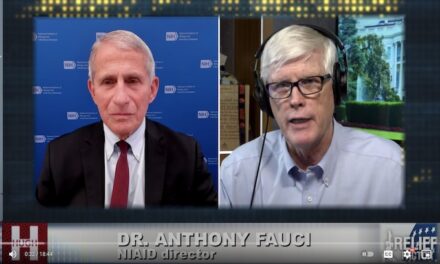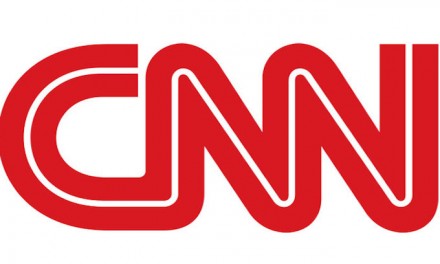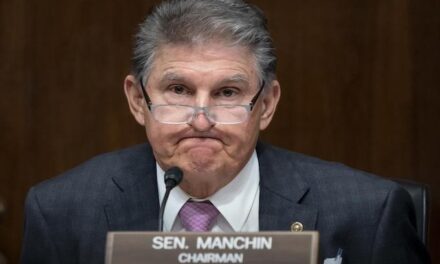Gallup has just released the results of its annual Mood of the Nation poll. The nation is in a great mood.
Ninety percent of Americans are “satisfied with the way things are going in their personal life” and two out of three say they’re “very satisfied.” These are the highest numbers in 40 years.
The historical low in the mood ranking was 73%. That was measured in July 1979, during the period when Americans were ticked off over an oil crisis. That’s also when then-President Jimmy Carter gave an Oval Office address blaming the country for a “malaise” that was interfering with his plans to persuade Americans to adjust to sweaters and scarcity.
A year after Gallup measured the nation’s record-low mood, Carter was defeated for re-election by the sunnier vision of Ronald Reagan.
Analyzing the latest poll, Gallup writes, “It’s likely no coincidence that Americans’ heightened satisfaction with their personal life comes as confidence in the U.S. economy and their personal finances are also at long-term or record highs.”
The pollsters report that Americans’ views on their own financial situation have been climbing since 2018 and are “at or near record highs in Gallup’s trends.” Last year, 50% of Americans said they were better off financially than they were the year before. This year, 59% of Americans said that.
The previous high in the poll for the “better off financially than the year before” question was 58% in January 1999. The all-time low was 23% in May 2009.
Another interesting figure from the poll measures optimism about future personal finances. A recent survey found that 74% percent of U.S. adults think they will be better off financially a year from now, which is the highest that Gallup has measured since 1977, when it first began asking the question. The previous high was 71% in 1998.
You may remember that 1998 was the year polls showed voters didn’t want Bill Clinton removed from office. The Republican Houseimpeachment managers didn’t come out of the experience as political winners
Then the nation’s mood was hammered by the 9/11 attacks and everything that followed, right through the housing crash and the Great Recession. The climb back has been steep and slow.
Now, a decade after the low of 2009, people are feeling better about their lives and their prospects for financial success.
This is the point where partisans will have a knock-down, drag-out fight over whether we’re experiencing the consequences of three years of Trump’s policies or the slow-motion, delayed success of Obama’s.
Trump previewed his side of the argument during the State of the Union address. “If we had not reversed the failed economic policies of the previous administration, the world would not now be witness to America’s great economic success,” he said.
Democrats may dispute that, but it won’t be easy to persuade Americans to change horses in midstream.
There’s a period of time, probably a minimum of 40 years, after which people forget the pain of a problem and become willing to blame the earlier era’s solution for current problems. One example might be the present controversy over vaccinations. Years ago, when Americans had personal experience with polio and other diseases within the previous decade or two of their lives, no one would have been able to persuade them that vaccinations were a bad thing.
Another example is the Depression-era legislation Congress passed in 1933, four years after the stock market crash, to separate investment banking (issuing and selling stocks and bonds) from commercial banking (holding deposits and making loans). The purpose of the law known as the Glass-Steagall Act was to prevent losses in the investment banking business from bleeding the commercial banks, drying up the credit markets, and strangling the economy.
A similar firewall was built in 1956 by the Bank Holding Company Act. It separated insurance underwriting from banking. The idea was to prevent losses in the insurance business from bleeding the commercial banks, drying up the credit markets and strangling the economy.
However, by 1999, Congress had completely forgotten the feeling of a sharp stick in the eye that had triggered the firewall legislation. How much more efficient it would be, they reasoned as they pocketed campaign contributions from the financial services industry, to merge investment banks, commercial banks and insurance underwriters.
Congress passed and President Clinton signed the Gramm-Leach-Bliley Act, repealing Glass-Steagall and all those other stuffy bureaucratic regulations that modern people are too smart to need.
It took nine years for the financial markets to go from stuffy and boring to thrilling and catastrophic.
Today, we’re barely a decade past the 2008 crash and the plunge into the Great Recession.
Everybody remembers the pain.
So when Gallup finds that Americans’ confidence in the U.S. economy is at its highest point in two decades, that is a political story of some consequence.
Gallup’s Economic Confidence Index is currently at +40, the highest measurement since it hit +44 in October 2000. The Economic Confidence Index measures Americans’ ratings of current economic conditions and their opinion on whether the economy is getting better or worse. Today 62% of Americans rate the economy as “excellent” or “good,” and 59% say it’s getting better.
This “likely reflects the U.S. unemployment rate’s continued stay at a 50-year low,” Gallup wrote.
Turns out the Iowa Caucuses got it exactly right. This year, there’s no winner in the Democratic Party.
Susan Shelley is an editorial writer and columnist for the Southern California News Group. [email protected]. Twitter: @Susan_Shelley
___
(c)2020 The Orange County Register (Santa Ana, Calif.)
Visit The Orange County Register (Santa Ana, Calif.) at www.ocregister.com
Distributed by Tribune Content Agency, LLC.



















Recent Comments